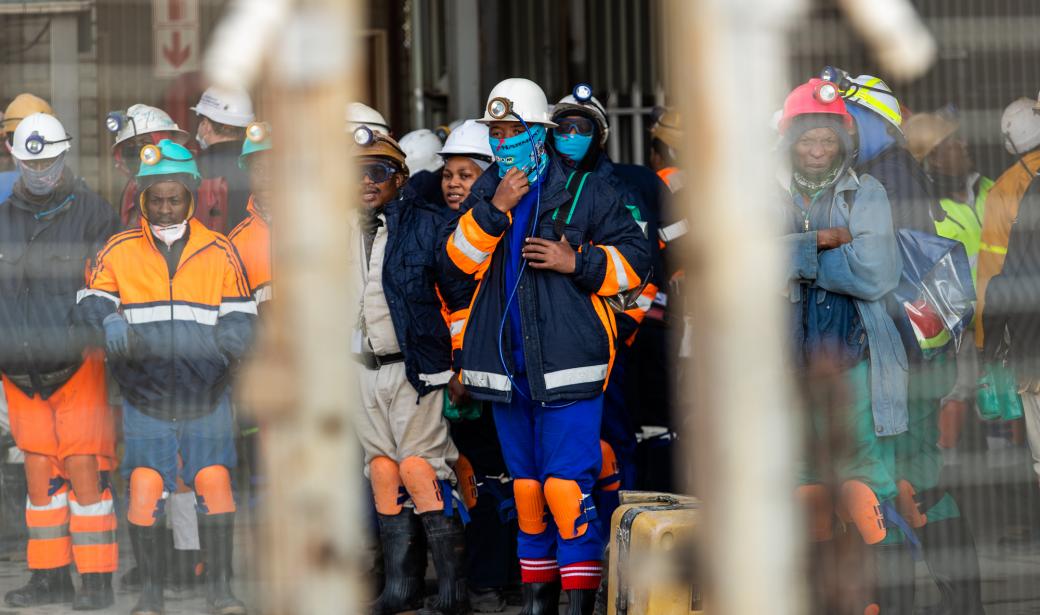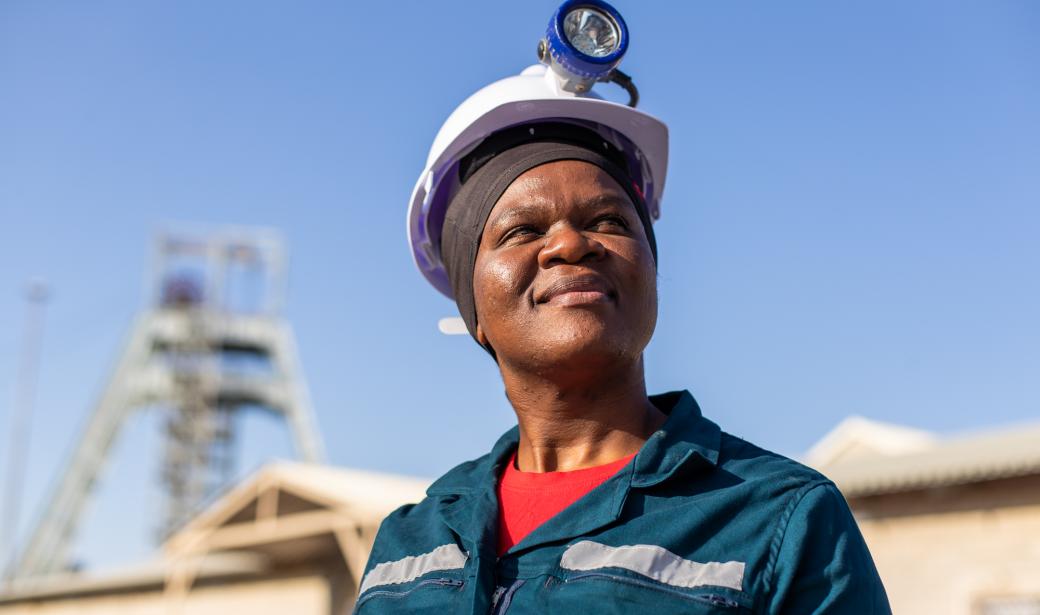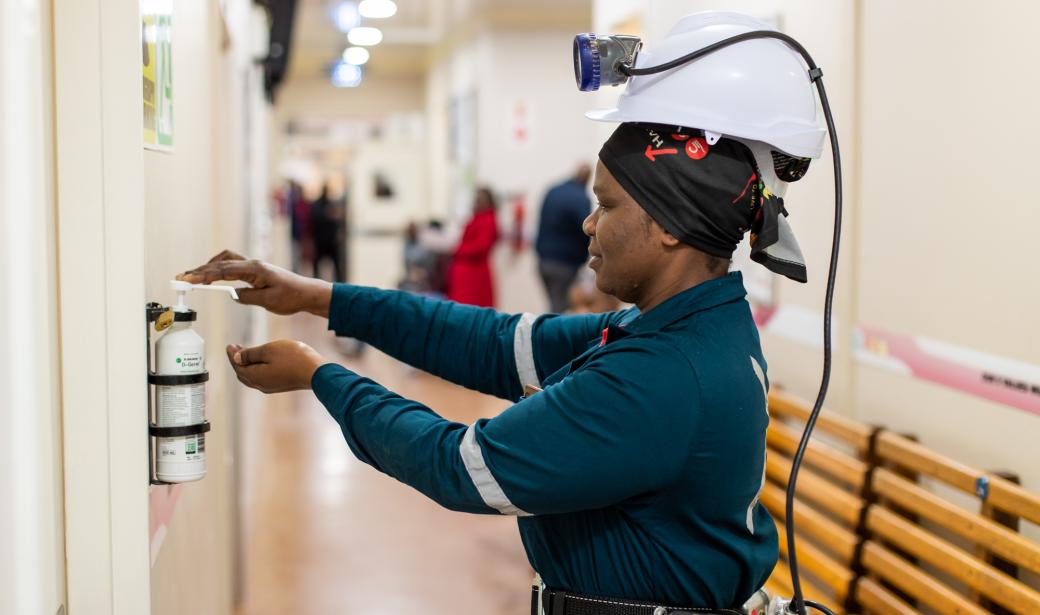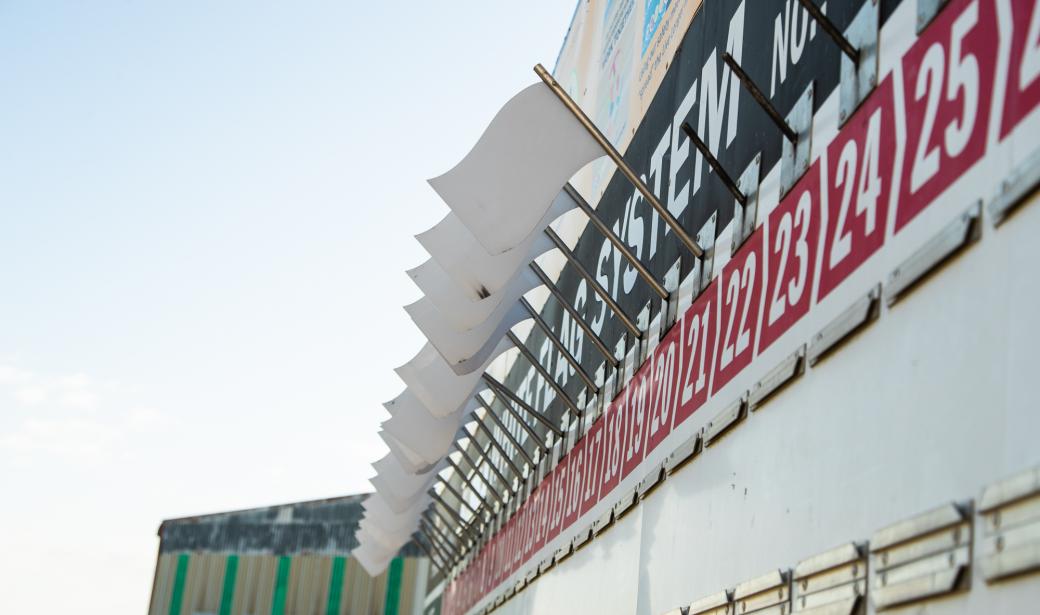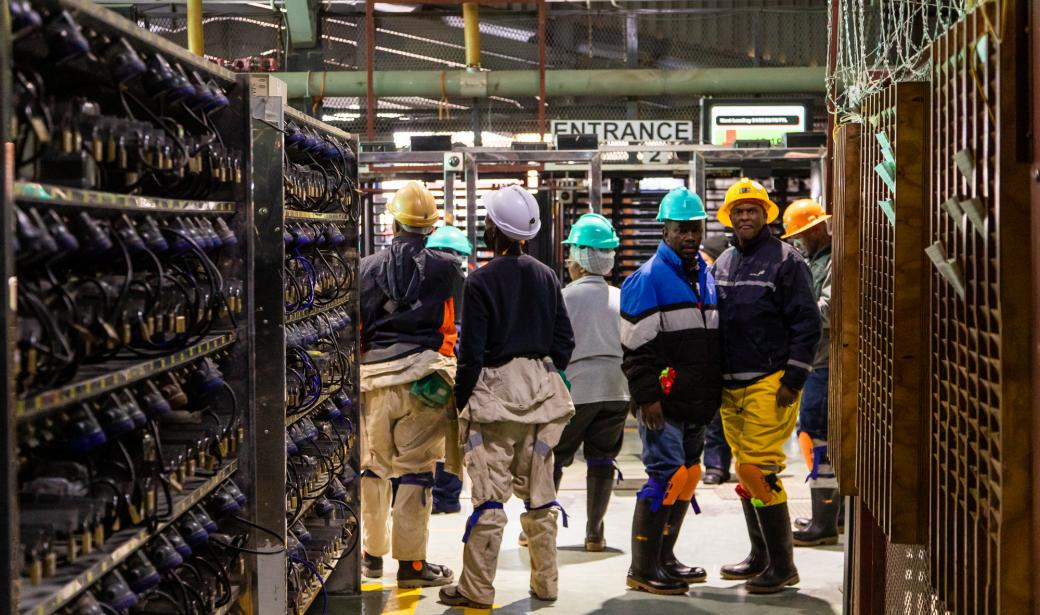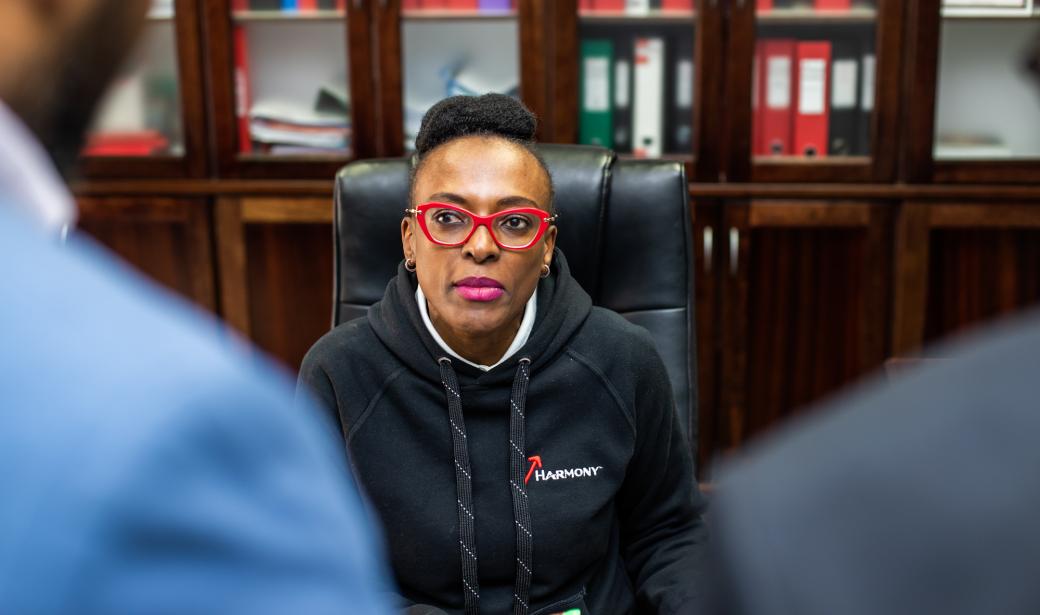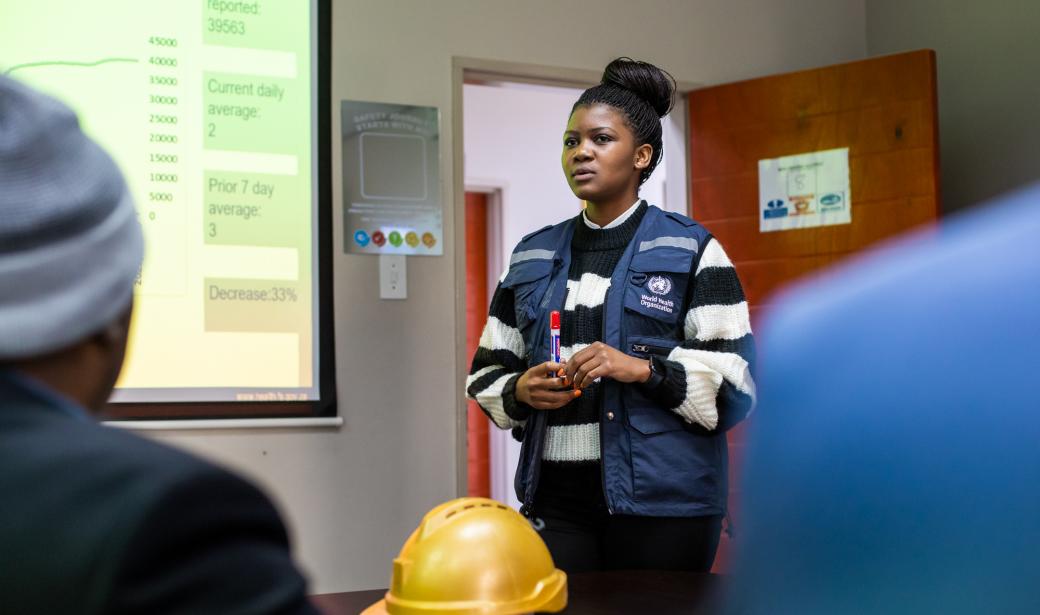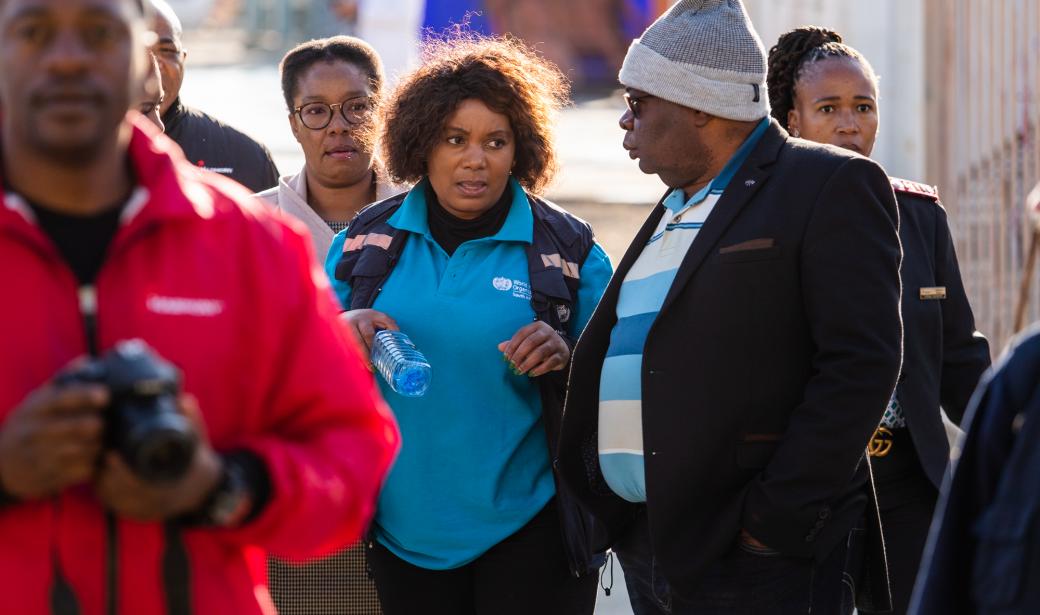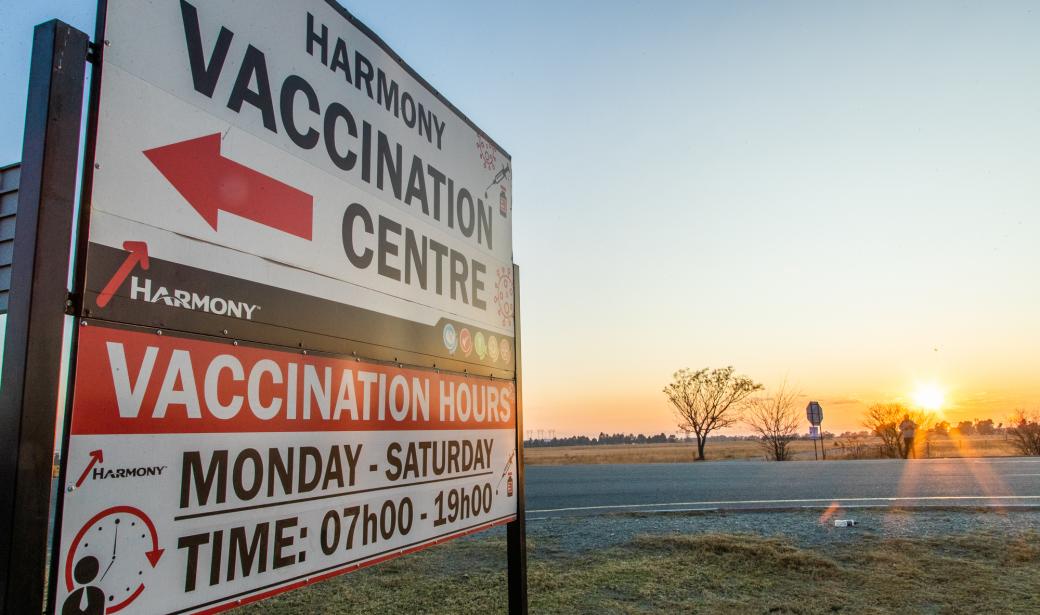Lejweleputswa, South Africa – South Africa’s mining industry is a major economic contributor. Like much of the economy, it was hit hard by the COVID-19 pandemic, leading to production decline and loss of life. To protect workers’ health, mines have set up preventive measures and are collaborating with health authorities to curb potential widespread infections. At Harmony Gold Mines in Lejweleputswa district in Free State Province, a robust outbreak management system has helped identify cases in time and promptly referred them for care. Vaccination has also been a success: more than 80% of Harmony’s workers have completed their primary vaccination series and 34% have received a booster dose.
She is grateful to be alive, productive and provide for her two boys back home in the neighbouring Eastern Cape Province.
Maqutyana fell ill with COVID-19 more than two years ago. After self-screening before starting her shift and subsequently testing positive for COVID-19, the mine sent her home to self-isolate 14 days.
She was not well and anxious. She had heard about the many deaths from COVID-19 happening around her. “I had this shortness of breath – I thought I was really dying,” she says.
The nurse also asked Maqutyana for a list of people with whom she had been in contact. The mine traced them, and they too underwent self-isolation.
Maqutyana survived and was able to return to work in full health. “I recovered really well, with the help of my employer,” she says.
So, when COVID-19 hit, the mine used the many disaster management processes already in place to prepare its outbreak management strategy.
During the strict lockdown in April 2021, when the mine had to shut down completely for three weeks, management used the time to pre-plan. They set up strict screening processes and identified and prepared quarantine sites before bringing back half of the workforce.
At first, 25 000 workers returned to the mine. But since July 2020, 45 000 mine workers have been through this process daily, before descending underground.
Dr Tumi Legobye, Health Executive at Harmony Gold Mines, says that the aim of these measures is to protect the miner’s health. “As an employer I am more interested in making sure that a worker like Bukiwe is well. And that is a drive for Harmony. I have to make sure that Bukiwe can come back to work. I cannot lose Bukiwe with all her skills and knowledge. So, we had to make sure that employees come back healthy,” she says.
The outbreak management strategy paid off. Of the 22 470 workers tested, 6110 tested positive, of which 79 lost their lives.
“We were able to collaborate on our contract tracing, especially when there was community transmission. We helped follow up on family members and other communities the mine workers had been in contact with,” says Oratile Mokgethi, WHO’s District Epidemiologist for Lejweleputswa, who supports the department with data analysis and reporting.
Vaccine acceptance among mine workers has been high, according to Legobye, the Health Executive at Harmony Gold Mines. Workers are educated and
counselled before they receive the jab, allaying any concerns they may have about its safety or efficacy. Currently, 84% of Harmony’s workers have completed their primary vaccination series and 34% have received a booster dose.
The new processes that have been put in place at the mine, in addition to existing disaster management mechanisms, means that Harmony’s has elevated its rapid response to future outbreaks.
Communication Officer
WHO Regional Office for Africa
Email: ridgardn [at] who.int (ridgardn[at]who[dot]int)
Tel: +254 11 289 0666
Media Relations Officer
WHO Regional Office for Africa
Email: dalalm [at] who.int (dalalm[at]who[dot]int)
Tel: +254 703 245 761 (WhatsApp)



